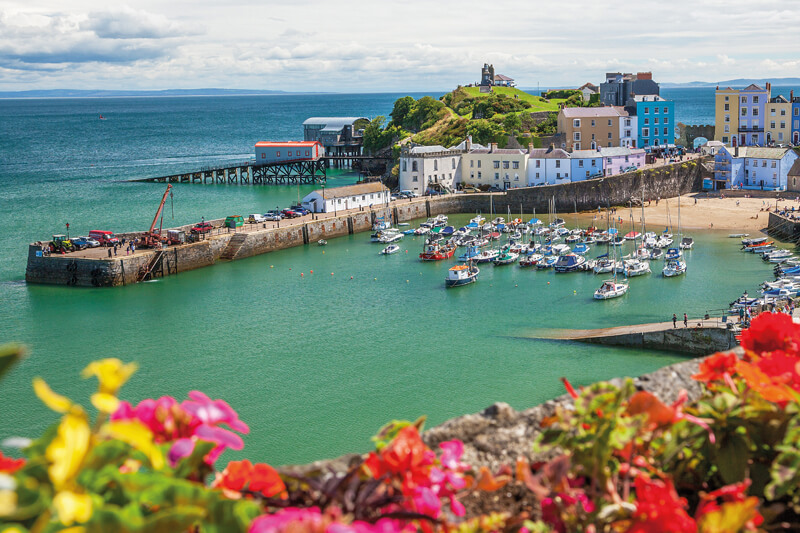Grab your suitcase! THESE are some amazing alternative staycation destinations in the UK
by Matthew Martino
With lockdown restrictions easing but international travel still uncertain, staycations are becoming an extremely popular option for UK holiday-goers this year.
If you’re keen to avoid the crowds and the staycation hotspots on your next trip, new research by holidaycottages.co.uk reveals the best alternative destinations to the top staycation hotspots in the UK.

The research reveals that 84% of Brits are considering a staycation this year, as well as discovering their top wish list destinations for 2021. Results are as follows:
Cornwall (48%)
Devon (43%)
Cumbria (41%)
Yorkshire Dales (35%)
Edinburgh (34%)
But if you want to avoid the crowds in these popular tourist hotspots this year, we’ve discovered the best alternative destinations for you and your family to enjoy.
1. Cornwall: Instead of St Ives, why not try Penryn?
Cornwall is the number one location on Brits’ wish list for a 2021 staycation with 48% of people having the destination on their list. St Ives is a particularly popular Cornwall hotspot but why not switch it up this year and try Penryn?
24 miles away from St Ives, Penryn offers so much for holiday-goers. From its historic character to its golden beaches and the beautiful Penryn river, it’s an amazing option for a UK staycation. Penryn is also very close to the coastal town of Falmouth which offers many different activities as well as its stunning scenery. Make sure to visit The Roseland Heritage Coast and Enys Gardens!
2. Devon: Instead of Woolacombe, why not try Branscombe?
Another popular place that Brits want to visit in 2021 is Devon, with 43% of the nation having it on their wish list. Known for its spectacular sandy beaches, Devon’s Woolacombe is a fantastic holiday destination but if you’re looking for an alternative, why not try Branscombe instead?
Situated 73 miles from Woolacombe, Branscombe’s National Trust owned beach is the perfect destination for an unforgettable family holiday. Branscombe is a great place for rock pooling and sea swimming (weather permitting, of course) and you’re sure to find less crowds here too.
3. Cumbria: Instead of Windermere, why not try Hawkshead?
41% of Brits named Cumbria on their staycation wish list, and Windermere is a very popular destination in the Lake District. But why not consider visiting Hawkshead for a unique UK holiday? Just 9 miles away from Windermere, there’s a lot to explore in Hawkshead including the beautiful Coniston Water and Esthwaite Water, which make spectacular walking locations!
4. Yorkshire Dales: Instead of Whitby, why not try Runswick Bay?
Next on the UK’s wish list for 2021 staycations is the Yorkshire Dales which made it on to 35% of Brits’ wish lists. In nearby North Yorkshire, famous coastal town Whitby is a go-to destination. But for those who are looking for a quieter and more peaceful holiday this year, only 9 miles away from Whitby is Runswick Bay. Surrounded by red-roofed houses and picturesque cliffs, Runswick Bay is an amazing UK coastal holiday location. As well as stunning scenery, there are plenty of walks to enjoy in Runswick Bay including the Cleveland Way National Trail.
5. Edinburgh: Instead of Edinburgh, why not try the Isle of Arran?
Over a third (34%) of Brits have Scotland’s Capital on their staycation wish list. However, if you’re looking for an alternative to Edinburgh, why not try the stunning isle of Arran? Described as ‘Scotland in miniature’ and accessible by ferry, this beautiful island has everything you could want from a Scottish holiday: amazing views, delicious food and drink and countless coastal activities. So, why not visit this year?
Commenting on the research, Shannon Keary, PR & Communications Manager at holidaycottages.co.uk, said: “It’s amazing to see all of these alternative travel locations available to us within the UK. For everyone who found a love for staycationing last year, we hope that this will inspire them to visit some of the lesser known gems rather than heading straight for the hotspots.”
